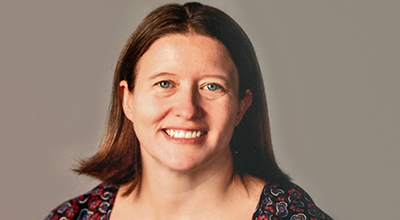I am NIMH: Q&A with Jennifer Humensky

Jennifer Humensky, Ph.D.
What is your name and job title?
Jennifer Humensky, Ph.D., chief of the Financing and Managed Care Research Program in the Services Research and Clinical Epidemiology Branch within the Division of Services and Intervention Research (DSIR).
This role is an opportunity to have a larger influence on the field than I could as an individual investigator. I’m not limited to the work I can do myself.
How would you summarize what you do?
I oversee the financing and managed care (also known as the health economics) research program within DSIR. My role is to build the health economics portfolio by supporting extramural investigators and showcasing the importance of health economics research for improving mental health care treatment and outcomes. We look at health economics issues from the supply and demand sides.
Supply side: When implementing any new intervention, the first question is how it will be paid for. It is essential to understand how financing can impact the efficient and equitable delivery of health care.
Demand side: Socioeconomic status can impact whether patients can seek care; it is vital to understand the impact of social determinants of health on access to treatment and treatment engagement.
How did you come to NIMH?
By training, I am a health economist and received my Ph.D. at the University of Chicago. From there, I did a post-doctoral fellowship at the Department of Veterans Affairs in Chicago and then moved to Columbia University in New York City. While at Columbia, I received a K01 Career Development Award, an R01 as a Multiple Principal Investigator, and other foundation research grants
Throughout my career, Agnes Rupp, my predecessor in this health economics position, was a wonderful mentor and advocate for health economics research. When she retired, I applied for this position.
How long have you worked at NIMH?
I started in March 2021 and have worked here for 2 years.
What makes you want to stay at NIMH?
This role is an opportunity to have a larger influence on the field than I could as an individual investigator. I’m not limited to the work I can do myself. I can help write funding opportunities, participate in funding decisions, and contribute to committees that can help influence policy from within the U.S. Department of Health and Human Services. All these activities can help to shape the future of health services research.
There is also a very supportive working environment here at NIMH. Colleagues quickly recognize one another with “high five” awards and shout-outs at meetings. It helps promote the idea that when one of us does well, it improves things for all of us.
What is your favorite part of your job?
My favorite part of the job is writing funding opportunities; I think that has the biggest impact on the field.
I have also had the opportunity to help develop conferences, including the Mental Health Services Conference, which is a rewarding way to showcase successful investigators and help researchers learn more about research at NIMH.
I also helped develop a new NIMH-NIDA Health Economics conference, which represented a partnership with the NIMH Center for Global Mental Health and the National Institute on Drug Abuse. We pulled together funded investigators to highlight NIMH and NIDA research on various topics in health economics, including payment and financing, behavioral economics, and social determinants of health. We also brought in plenary speakers to help inspire investigators to consider new ideas, including the role of health economics in improving health equity and measuring quality and value in mental health care. We hope that meetings like this will help inspire investigators to pursue new research areas.
What would you tell a friend if they were considering working here?
If the friend was considering becoming a program officer, I would tell them what I said above. There is a real opportunity to influence the direction of the field, which is hard to have as an individual investigator.
What’s one life lesson you’ve learned from your career?
Focus on the big picture and align your goals to that.
What is a benefit of working here that not many people know about?
The NIH staff go all out to make events special. One example is the Take Your Child to Work Day – the staff really put in a tremendous effort to provide programming that excites the kids, which is no easy feat when the event is virtual.
If you weren’t doing this job, what would you be doing?
I would still be conducting health economics research.
